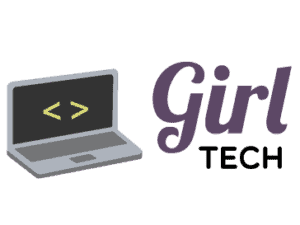So you just received your degree and are ready to dive headfirst into a new career as a programmer. Your excitement may naturally lead to slight anxiety when you consider acing the interview of any prospective employer. This is normal and universal with any field in the workforce, but it is also a good idea to know what to expect during an interview.
Entry-level programmer interview questions will typically range from both technical and personal queries. Prospective employers will want to know if you are ready to tackle common techniques in software or web programming. Additionally, your goals and work ethic will also be evaluated.
Programming is a complex occupation, and the questions asked during an interview will aim to test your knowledge before an offer of employment is given. Read on to discover more about the types of questions you can expect in an interview and tips to answer such questions successfully.
Entry-Level Programming: What to Expect
When it comes to programming, hiring managers have a very tough job ahead of selecting the perfect candidate, even for entry-level positions. You can have a stellar resume and educational background, but that doesn’t give employers the full picture of what you can do for their company.
Programming is the type of job where a mastery of the basics needs to stand side-by-side with how you interpret programming individually.
Essentially, employers are looking for an entry-level candidate that meets all of the required qualifications and can be a successful programmer. An employer will want to know about your work style and how you interact with other programmers and how well you can answer technical questions on the spot.
During your interview for an entry-level position, you can expect questions to be general and technical. An entry-level programmer generally will not have an overwhelming workload during this phase. However, expect the interview to be tailored to your future potential as a junior, intermediate, and senior programmer. This is your entry into the field of programming, therefore, be prepared to stand out.
The best that you can do is be prepared to sell your knowledge and your passion for programming. Never be afraid to speak enthusiastically about new trends in software or web programming, and be sure to offer solutions for how you could implement those trends into the concepts you learned during your education.
With this in mind, the next sections will explore a range of sample questions and guidance for how best to answer the questions.
Take a look at this video that offers some sample questions and possible answers you could consider:
General Questions
Tell Us About Your Background?
This is a standard and time-honored interview question. You can expect the employer to be interested in your education or any training you have had for entry-level positions. Non-relevant jobs should be left out of the conversation. Explain your positive experiences during your degree and mention any training or freelance work you may have received or completed.
If you truly have no experience to describe, which may be likely if you are applying directly after receiving your degree, consider taking on some freelance work before you decide to apply for this position or have something to show as a personal project for instance.
Describe Your Experience With a Programming Language?
Most employers will likely want to know about what programming language you are more familiar with. Programming Languages like Java, Python and Javascript are very popular nowadays. You can also mention any programming language you have work and what you have done and how well you are able to grasp the language based on a particular project.
How Well Can You Work With a Team of Programmers?
Programming is about working as a team to ensure that a project has as many inputs and critiques as possible before a final solution is reached. An employer wants to know how well you handle a group dynamic and how eager you are to share in team-oriented projects.
How Do You Handle Stressful Situations?
Be very insightful when it comes to this question. Employers want to hire programmers prepared for tight deadlines and maintain a sense of urgency and calm when it comes to last-minute issues. Show how well you can be a problem solver and brush up and the ins and outs of programming troubleshooting.
Technical Questions
What Is a Code Review?
As an entry-level programmer, coding will be a large majority of your workload. An employer will usually start the technical questions with a basic question testing your coding knowledge. Since code review is crucial for a programming team, be sure to explain what code review is and its overall importance when checking a program’s quality throughout the programming process.
Describe the Difference Between an Object and a Class?
An employer will likely want to know your overall mastery of object-oriented programming (OOP). Be sure to explain the coding attributes for data sets in the form of objects and how this relates to different classes taking shape based on the accumulation of different objects within a programming architecture
What Is a Stored Procedure?
Entry-level programmers will be expected to know the basics of database storage related to the particular products that the company uses. The interviewer will want you to explain how a stored procedure can be built and maintained. Be sure to provide lots of details and specifics with this question as this also pertains to quality assurance for managing coding procedures.
What Areas of Entry-Level Programming Should I Focus on When Preparing for an Interview?
It is important to remember that an entry-level position will primarily be geared towards assistance to junior, intermediate, and senior programmers and coding. You will also be expected to troubleshoot design and program issues and be prepared to do a large amount of debugging.
Even though the job is similar to an internship, the interview will assess your overall knowledge of programming and the steps you have taken to become a programmer. Knowing the basics of programming will be expected, but it is okay to admit that you do not know how to answer a complex technical question. Admitting your lack of knowledge is always better than fumbling your words.
If you are trying to figure out where to hone in your research before an interview. It is best to consider the entire spectrum of programming and quiz yourself on the essential programming elements to ensure you are prepared for an entry-level position.
You may not have to know GAC’s ins and outs or multiple questions related to arrays, but you will need to express your understanding of coding on a surface level. Allow your qualifications and enthusiasm to play a large role during the interview process.
You are not expected to know what a senior programmer will know, but you need to ensure that you are aware of the foundations of programming and are ready to climb the programming ladder.
Conclusion
These are some of the most common interview questions that you can expect for an entry-level programmer position. Remember that an interviewer will ask two different kinds of questions:
- General information about your background and experience
- Programming-specific technical questions to test your knowledge
Be sure to dress the part and display an enthusiastic yet professional demeanor. Draw on experience and knowledge that you have gained thus far, and always be concise and substantial in your answers. This position is competitive, so be sure to sell your passion.

